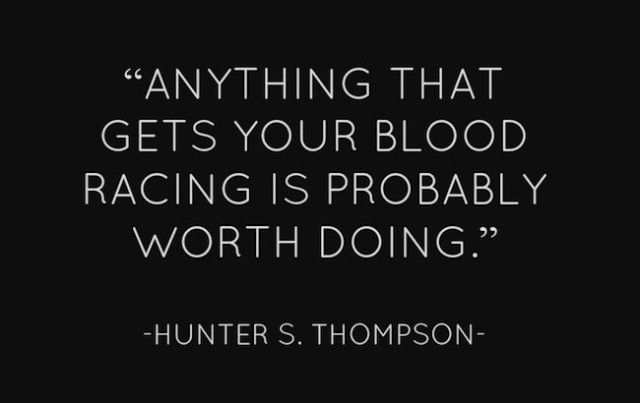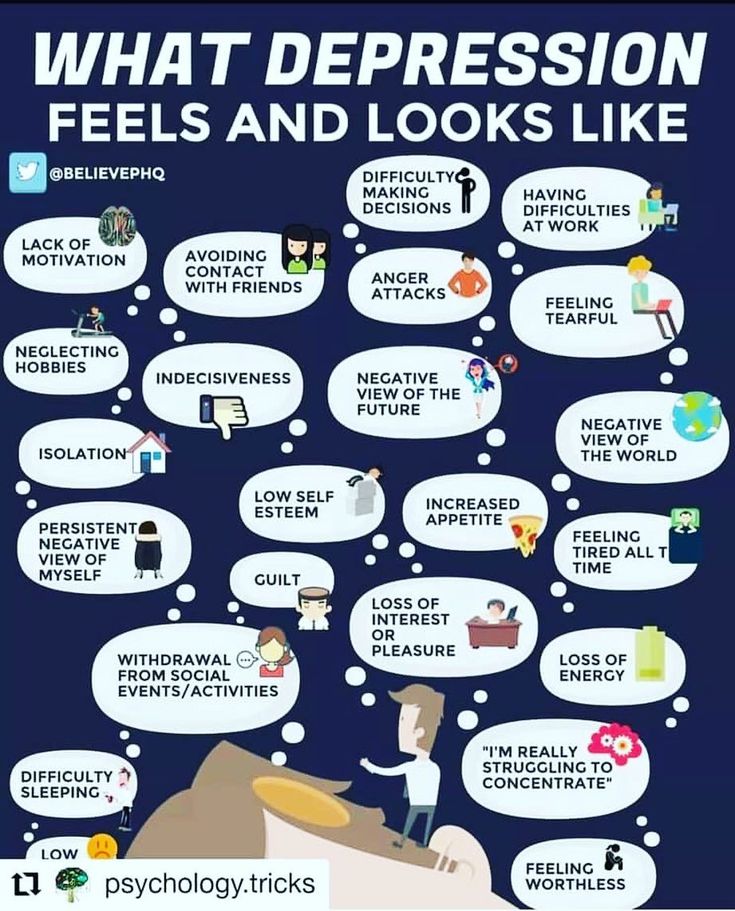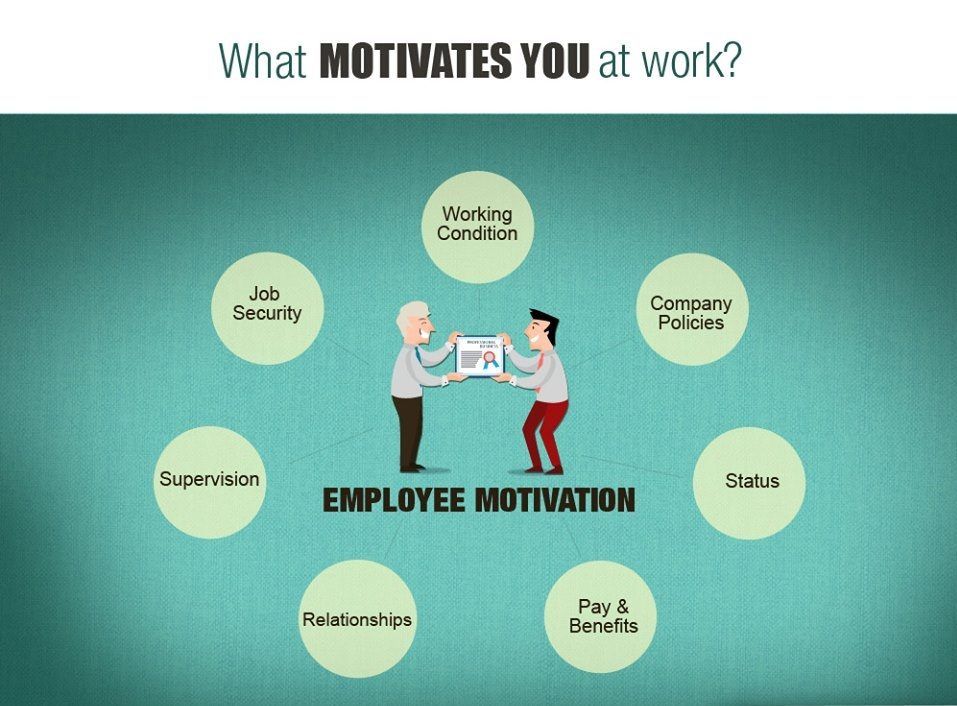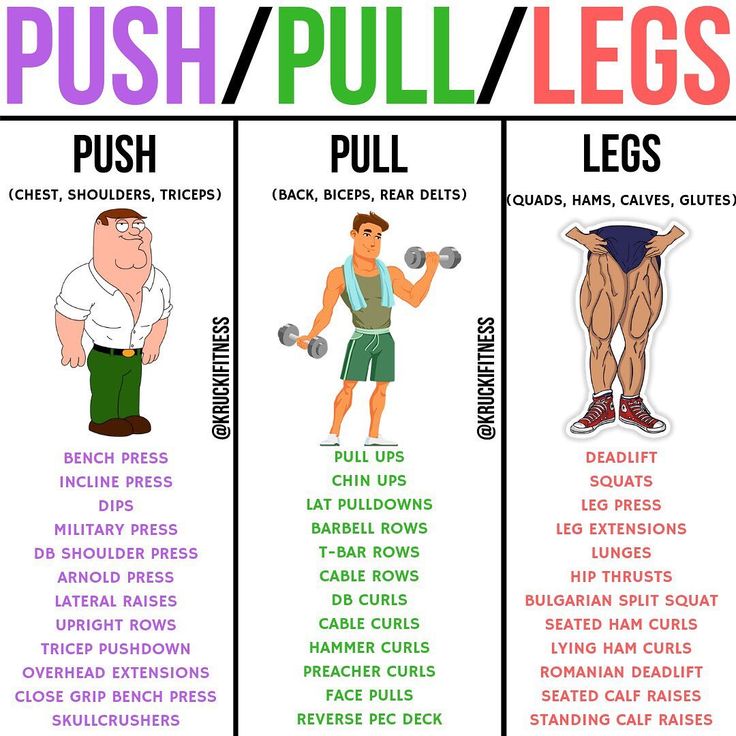Lack of motivation to do anything
6 Causes and Ways to Overcome It
Jump to section
Understanding how motivation works
Why are you lacking motivation?
How can you get back on track?
FAQs about motivation
Everyone experiences a lack of motivation at some point in their life. Whether you’re having a hard time finding a sense of motivation to do your laundry or work on the business pitch you’ve been thinking of, we all get into slumps.
But we can all learn to identify what causes a lack of motivation in daily life and how to help ourselves get back on track.
Understanding how motivation works
You developed strategies to increase your sense of motivation a long time ago. You didn’t even realize it, but they formed at a young age — long before you entered the workforce. Here are three examples to reflect on to better understand motivation.
Being motivated by “adults” no longer works when you are one
Did your parents or teachers yell at you to convince you to complete your daily tasks when you were young? Parents or teachers motivating you by punishing or reprimanding you if you didn’t meet their expectations isn’t sustainable in adulthood. This is extrinsic motivation.
But now that you’re an adult and you can’t get detention or be grounded, nobody is pressuring you the same way. This could be why you’re having a hard time finding motivation.
Being a people-pleaser undermines your motivation
Are you a people pleaser? Do you lack motivation? Little do you know, those things are related. If your motivation only turns on when you’re trying to do something for other people, you won’t have any left for yourself.
Even if you think you’re just a great helper, you’re training yourself to put others before your well-being.
Social media consumes your motivation
As you scroll through posts and posts, your need for self-esteem could be suggesting that you need to be more like people you see online. The images and lives shown are curated and often unrealistic. They may seem unreachable. Rather than motivate you, social media can be demotivating.
Even if you are motivated by what you see, the time lost can still cause you to lose motivation. Also, if you rely on comparison, when you take a break from social media, that motivation could be gone.
Also, if you rely on comparison, when you take a break from social media, that motivation could be gone.
Why are you lacking motivation?
It’s okay that your previous motivators don’t work for you anymore. This means you’re experiencing some personal development, and that’s good. It’s important to understand that no matter why you’re experiencing low motivation, there will always be strategies and people to help you find motivation again.
A few people more than happy to help are the coaches at BetterUp. We want to be there for you regularly to help your well-being and learn how to unlock your motivation again. To learn more about BetterUp, click here.
Everyone experiences a lack of motivation in different ways. What hinders some may not be an issue at all to others. The first step to beating your procrastination is to identify your motivation problems.
Think about which ones apply the most to you. Here are six causes for lack of motivation:
Spreading yourself too thin
Burnout is real. When you have too many things on your to-do list, it doesn’t encourage you to get them done. Your procrastination can stem from feeling overwhelmed with your daily tasks. It doesn’t matter if you’re working from home and think you have plenty of time to hustle; your energy and level of motivation can be exhausted from your couch, just like the office.
When you have too many things on your to-do list, it doesn’t encourage you to get them done. Your procrastination can stem from feeling overwhelmed with your daily tasks. It doesn’t matter if you’re working from home and think you have plenty of time to hustle; your energy and level of motivation can be exhausted from your couch, just like the office.
Doubting yourself
When you doubt your abilities, you don’t feel like your completed tasks are done right. It can be a struggle to feel that sense of motivation to get started. Try to tell yourself some positive affirmations to help you get off the right foot. Think about the qualities and characteristics that you love about yourself. Even if it’s not work-related, think about how you deserve to keep trying to achieve your goals.
Mental health issues
Low motivation can be a common symptom of depression, anxiety, and other mental health issues. You can practice self-help and self-care as much as you can, but you may find that seeking professional help is more helpful for your emotions. Online therapy is beneficial, especially during the COVID-19 pandemic. Just know that you’re not alone, and you have lots of loved ones who want to see you receive the best help.
Online therapy is beneficial, especially during the COVID-19 pandemic. Just know that you’re not alone, and you have lots of loved ones who want to see you receive the best help.
Lack of commitment
Take a step back and think about how dedicated or passionate you are about your work right now. Do you agree to do these tasks because you feel obligated? Identifying where your to-do list decreases your motivation helps you know where to add some spice. (And by spice, we mean something fun that gives you incentive and energy to complete your tasks).
Bad attitude
Things don’t always go the way we hoped, but that doesn’t mean you’ll stay in a rut forever. Focusing on bad things deters you from accomplishing tasks, and it can’t control you forever. You can be upset, but a lasting bad attitude will ruin your motivation unless you actively try to change it.
Not being specific enough
You may think you have specific goals in mind, but are they encouraging your motivation levels? Giving yourself clear directions is essential. Without them, vague ideas will fade over time. You can’t just say you want to eat healthier. You need to be specific about what you want to achieve and outline precisely how you’re going to do that.
Without them, vague ideas will fade over time. You can’t just say you want to eat healthier. You need to be specific about what you want to achieve and outline precisely how you’re going to do that.
How can you get back on track?
Now that you know what can cause a lack of motivation, you need to learn techniques to start finding your motivation again. Repeating positive affirmations will only take you so far.
Each tip may not be for you, but try and find at least one that you can start practicing:
- Listen to podcasts that share positive, encouraging stories.
- Surround yourself with people in your life who are also working on goals and share progress and challenges.
- Give yourself incentives or rewards for accomplishing tasks.
- For every task you do that you don’t like, do something that makes you happy.
- Break your to-do list into manageable sections.

- Make your tasks into habits in your daily routine.
- Get outside for a walk to center your focus.
- Be kind and compassionate to yourself.
- Argue the opposite when you think negative thoughts.
FAQs about motivation
Are you wondering about other common questions people lacking motivation ask?
What’s the importance of having a challenging job to feel motivated?
Without any challenges, you won’t have anything new to work toward. If all of your tasks are easy, you won’t have any incentive to do better. Regularly throwing in a challenge can motivate you to learn something new, sharpen your skills, and try new experiences.
What things affect my motivation?
Plenty of things can affect your motivation. The weather, people around you, how hungry you are, and more impact your motivation levels. Pinpointing what impacts you the most is challenging, but it can help you get back on track. Next time you lack motivation, pay attention to your surroundings.
Next time you lack motivation, pay attention to your surroundings.
How can I help someone that’s feeling unmotivated?
One of the best things you can do for someone lacking motivation is to support them when and how they need you. If they’re struggling against a mental illness, you can suggest seeking professional help. If they need someone to hold them accountable for their daily tasks, you can do that too. Show up for them in the ways that suit them; everyone’s needs are different.
8 Things That Cause Your Lack of Motivation (And How to Fix Them)
Lack of motivation can crush you, literally cripple you from taking action. If you’re sick of suffering from a lack of motivation, you’re in luck, because you’re about to learn the 8 major reasons why you’re short on the motivational energy you need to successfully accomplish your goals… And exactly how to fix each of them. By the time you’re done reading (or listening) this, you’ll have the knowledge you need to unleash the motivational powerhouse within you. Let’s dive in. Scroll down to keep reading, or click the Play button below to hear the podcast version (which has two parts.)
Let’s dive in. Scroll down to keep reading, or click the Play button below to hear the podcast version (which has two parts.)
Table of contents
- You don’t know what you want.
- You’re not in control of your physiology.
- You’ve made “lack of motivation” part of your identity.
- You’re not aiming high enough.
- You’re overwhelmed.
- You’re prone to procrastination.
- You’re not being specific enough to spur motivation.
- You’re seeking motivation where you should be seeking habits.
Part I.
Part II.
Launch + listen elsewhere:
Apple Podcasts | Spotify | Overcast | Google Podcasts
1.
You don’t know what you want.
Of all the reasons responsible for why you might be lacking in the motivation department, this first one is by far the most common: Either you don’t know what you want, or there’s a lack of clarity about what you want.
Whenever I do goal-setting workshops with people or with organizations, one of the first questions I ask is, “What do you want?”
You’d be surprised by how many people are unable to give me a compelling response to that question.
In other words: What’s the outcome you’re after?
What would it look like if everything were to go exactly as planned or better?
It’s tough to get motivated to do anything at all if we’re unsure about what we’re after in the first place.
Conversely, once we take those fuzzy dreams we have and bring them into focus by writing them out as goals, the motivation flows naturally.
If you ask a typical sports fanatic about their favorite team, they can give you so many statistics it’ll make your head spin. They can give you all the details you need to know about a team and its players—from speed to points per game and on and on…
But when someone asks them about the details of their own life, they can barely remember what they had for dinner last night.
And it’s not a matter of intelligence, either.
Here’s the thing: most people are about as intelligent as they make up their minds to be.
If it were a matter of intelligence, they wouldn’t have such an in-depth understanding of their favorite team’s stats.
It’s not about intelligence.
It’s about focus.
If you lack motivation in any area of your life, it’s likely because you haven’t decided in detail what you want in that area. And we can’t focus on something if we don’t know what we’re aiming for.
SOLUTION(S):
- The solution to the first reason why most people have a lack of motivation is simple. Keep in mind that you can’t hit a target that you cannot see. That said, identify some compelling, exciting goals for yourself in each of the major areas of your life – physical, financial, emotional, spiritual, etc. – and write them down.
2.
You’re not in control of your physiology.
Take a moment to picture in your mind what a person who has a lack of motivation actually looks like, physically.
If a person is unmotivated, how do they stand?
How do they sit? Do they have good posture or bad posture?
Are their shoulders pulled back or slumped over forward? Is their back upright or rounded?
Now imagine what a person who’s totally motivated looks like…
How does a person with motivation stand? Close and narrow, or open and upright?
How does a motivated person walk? Head held low, or head held high? Are their shoulders slumped forward, or pulled back nicely as they walk?
How do they sit? How’s their posture? Is their back bent forward, or are they sitting upright? How do they speak? How do they stand?
Hey—what if I told you that you could instantly motivate yourself by mimicking the images of a motivated person that you just pictured in your mind’s eye?
SOLUTION(S):
Motion leads to motivation. If you want to get motivated, learn to control your physiological state. Here’s how:
If you want to get motivated, learn to control your physiological state. Here’s how:
- first, figure out what kinds of movements you naturally make when you’re feeling motivated…
- Then, do those things and your mind will follow your body.
You’ll begin to feel more motivated when you put yourself in a position to actually feel more motivation. You do that with your body. Move like you move when you’re motivated. Stand like you stand when you’re motivated.
Here’s my silly—yet incredibly effective—process for using my body to elevate my motivation: Jump in the air. Clap your hands. And yell out, “WHOOOOOO!” at the top of my lungs.
Just try it and see if it doesn’t change your state.
See this article + podcast for more on this topic: Action Leads to Motivation »
3.
You’ve made “lack of motivation” part of your identity.
Have you ever seen someone make a mistake of some kind, and then follow it up by saying something like, “I’m so stupid”?
That’s an example of someone who’s just identified with their mistake…
But what if, instead of saying, “I’m so stupid” they said, “I just did something stupid”?
Yah see, there’s a big difference those two statements.
The first statement identifies you with your mistake.
This means you and your mistake are one.
The second statement makes a clear separation between you and your mistake.
This means that YOU are not stupid, but that you simply did something stupid.
Do you constantly reaffirm to yourself that you’re demotivated? Do you tell people that you “need to get motivated,” or that you just “don’t have the motivation to do it” right now?
If you repeat something often enough, it sticks.
One reason you may have a lack of motivation might be because you’re constantly identifying as someone who’s “unmotivated.”
So what’s the solution?
SOLUTION(S):
- Reverse the pattern. Make it clear to yourself that you do not identify as an unmotivated person, but are instead the type of person who feels incredibly motivated on a regular basis. YOU = Motivated.
- Keep in mind: identity-based mental patterns can get messy. It can take serious work to get yourself to stop thinking of yourself as an unmotivated person, and to replace it with the mindset of someone who’s motivated, but you can do it.
 And it all starts with deciding that you’ll no longer think of yourself as an unmotivated person, and to then reinforce that decision on a daily basis until it becomes a habit–until you become a motivated person.
And it all starts with deciding that you’ll no longer think of yourself as an unmotivated person, and to then reinforce that decision on a daily basis until it becomes a habit–until you become a motivated person.
4.
You’re not aiming high enough.
Whatever we seek to accomplish – writing a book, losing weight, achieving the perfect relationship with our significant others – it’s the degree of desire we have to accomplish those goals that ends up becoming the crucial element to achieving them. But too many people try to set limits on their desire. They tell themselves and others that they don’t need wild success. But this kind of thinking is dangerous because when we limit the scope of our desire, we limit the scope of what we’re willing to do to reach our goals. And when we limit the scope of what we’re willing to do, we limit the scope of our motivation.
A lack of exciting and desirable goals easily takes far too many people down the road of lackluster levels of motivation.
If you limit your potential success, you will limit what you are willing to do to create it—which limits your motivation, not to mention your general sense of fulfillment about the life you lead.
The solution to this problem is what’s known as The 10X Rule, which states that: You must set targets that are 10 times what you think you want and then do 10 times what you think it will take to accomplish those targets.
While some folks will tell you that setting impossible goals kills motivation, and that it’s better to “underpromise and overdeliver,” this line of thinking is actually foolish. 10X-targets—commonly called stretch goals—will only spur you on harder, to do more and try more than you ever have before. Besides, even if we fall short of achieving our 10X-level aims and ambitions, better to fall short of achieving a massive target than merely achieving a tiny one… Because if you aim high enough, you’ll demand more from yourself and become better in pursuit of a massive goal.
But setting a high target is only the first step. The second step is to take 10 times the amount of action you think is necessary to reach that target.
SOLUTION(S):
- When we’ve got puny, uninspiring goals, we tend to feel lethargic and unmotivated to achieve them. On the flip side, when we’ve got huge and ambitious goals, we feel empowered and invigorated to take action towards achieving them. Bottom line? Set massive goals. Take massive action.
- Push yourself to your outermost limits. You’ll find that the more action you take, the more motivated you become to continue doing even more.
5.
You’re overwhelmed.
Have you ever been so stressed, so overwhelmed, under so much pressure – that you’d rather say, “Screw it, I don’t even care” than to continue marching forward with whatever you’re trying to do?
Whatever the cause, one thing we know about being overwhelmed (or stressed to the gills) is that it can drain motivation, big time.
It’s hard to get motivated when you’re overwhelmed.
Now, obviously, if you’re overwhelmed, one solution might simply be that you need to take a break and get some rest… But in all honesty, I don’t think that’s the problem for most people. Most people don’t need more rest, they need more action.
That said, here are a couple of practical solutions to get yourself back on track if you’re suffering from a stress-related lack of motivation…
SOLUTION(S):
- Maybe you took that point I made earlier — about aiming higher and 10X-ing your goals to get you motivated — to heart. But maybe you also aimed a little higher than your current capabilities. If that’s the case, lower the bar – bit-by-bit – until you hit your sweet spot (which is somewhere between your current capabilities and a goal that’s just hard enough to achieve that you’ve gotta stretch to achieve it).
- Or, maybe you’ve just got way too many things on your plate. If that’s the case, it’s time to pair down and focus on crushing one big goal at a time, rather than trying to do too many things simultaneously.
 It’s like that old saying, “If you chase two rabbits, you won’t even catch one.”
It’s like that old saying, “If you chase two rabbits, you won’t even catch one.” - And finally, perhaps the most important thing you can do when you’re overwhelmed is to think about WHY you’re doing what you’re doing. If the why–the reason(s) you do what you do–is compelling enough, then you’ll be able to gather the motivation you need to succeed.
- For example, whenever I’m drained or feeling stuck on something I’m working on, I remind myself about all the reasons why I do what I do in the first place: to inspire people like you to improve their lives and achieve their goals; to provide for my family; to be a model of excellence that my daughter can be proud of; to make a meaningful contribution to society. Find your why.
6.
You’re prone to procrastination.
Another thing that can cause overwhelm–which leads to a massive depletion of motivation–is when we don’t have enough clarity about what to do next.
This ambiguity leads to procrastination.
And procrastination leads to a lack of motivation.
Here’s how to fix this one: Chunk things down to an immediate, doable action.
SOLUTION(S):
Take whatever it is that you lack the motivation to do, and chunk it down to an immediate, doable next action you can take immediately.
For example, I’m working on putting together a major course right now that’s designed to help people transform their lives in virtually every way possible so that they can improve their lives and achieve their goals. It’s a 30-day life mastery program that shares everything I’ve learned about the subject of Personal Development.
This involves a ton of work on my part: from structuring the curriculum, to putting together worksheets, to recording the audio sessions, to a million things in between.
I was thinking about this workload recently, and I felt incredibly overwhelmed and demotivated because of the sheer volume involved with a project like this. And just as I was about to curl up in the fetal position in the corner of my office, I realized I needed to take my own damn advice and chunk this thing down.
Instead of thinking about everything that needed to get done, I decided to ask myself, what’s “one thing I can do right now to make progress on this goal?” The answer to that, for me, was to write out the outline. Which I did. And the sense of motivation that began to bubble up as I started doing it was remarkable.
So, here’s the key: if you’re low on motivation, think about whether you need to chunk things down into something doable to move the ball forward. And if that’s the problem, chunk your project (or whatever you’re not motivated about) into something doable–and then do it!
7.
You’re not being specific enough to spur motivation.
Motivation is like a fickle, fleeting, emotional creature with ADHD. It’s difficult to get it to focus on a single thing for an extended period of time… Unless you provide it with very specific directions.
One reason you might have a lack of motivation is that you’re leaving things too open.
When things are vague, the motivation will fade.
When you’re unable to tap into the motivation you need to succeed, it might be because whatever thing you want to get motivated for is too vague. Here are a few examples of common goals that are way too vague:
- Wake up earlier.
- Exercise more.
- Eat healthily.
If you were to choose any of the above examples, here’s how things would most likely play out:
You’ll start off with tons of motivation at the very beginning…
But after a little while, you’ll notice that the motivation fades away and loses its potency.
So, what’s the fix?
SOLUTION(S):
- Give your brain specific and actionable directions. Doing this will provide it with the controlled focus it needs in order to unleash the motivational energy you’re looking for.
- An excellent way to drill down and get specific is to ask yourself questions. Here’s a great one that can narrow things down and, as a result, spark some motivation: “How will I know that I’m successful?”
- Answer that question with something specific and measurable.

Let’s say, for example, that you want to run a marathon six months from today. You know you need to train hard in order to prepare and condition yourself for the big day, but you lack the motivation to do so…
Here’s how you might put a specific plan together in order to spark motivation when you need it most; and even more important—sustain that motivation until marathon-day:
- How will I know that I’m successful?
- I’ll run my first marathon. (This is your ultimate goal, or “stretch goal.”)
- Specific: (This is a specific sub-goal to help you achieve your stretch goal.)
- Run 7 miles without stopping or walking.
- Measurable: (This is the method(s) you’ll use to measure success/progress)
- I’ll be able to run twice around the park without walking.
The more specific you make the actions and habits you need to take up, the smaller they become. And the smaller the action, the easier it is to motivate yourself to do it. Eventually, those small, specific steps you take on a daily basis will stack on top of one another––which leads to a sustained sense of motivation and accomplishment.
And the smaller the action, the easier it is to motivate yourself to do it. Eventually, those small, specific steps you take on a daily basis will stack on top of one another––which leads to a sustained sense of motivation and accomplishment.
For more on how to make specific plans to crush your goals, read or listen to this: How to Use Stretch Goals and S.M.A.R.T. Goals »
8.
You’re seeking motivation where you should be seeking habits.
The final reason most people suffer from an ongoing lack of motivation is simply because, at the end of the day, none of us can be motivated all the time. Often times, people say to me, “wow, you’re so motivated.” But here’s the truth: I just look like I’m motivated all the time, when in reality I’ve just been diligent about installing several keystone habits in the areas of my life that matter to me most.
You see, I don’t have to muster up the motivation to get up at 5 AM every morning, because it’s a habit.![]()
I don’t have to motivate myself to focus on writing every day, because it’s a habit.
I don’t have to get motivated to go to the gym every day, because it’s a habit.
I don’t have to motivate myself to do anything that I’ve become habituated to in my life, because habits are things we do regularly and automatically with little or no conscious thought or effort.
So, here’s the real question:
How do you develop habits?
SOLUTION(S):
In general, any habit can be broken down into a three-part loop that goes like this:
- Cue—something in your environment that sets off a habit. (You smell fresh cookies.)
- Routine—the set of actions you take in response to the cue. (You eat the cookies.)
- Reward—the results or feelings you get/experience from executing the actual habit. (You enjoy the reward of delicious-ness… And, if you knew you shouldn’t have eaten that cookie, that feeling will be followed by the negative “reward” of guilt from eating the cookie.
 )
)
Here’s a 5-step plan on how to develop a habit that you might typically think requires tons of motivation to stick with. You can use it as a guide for creating a habit of your own:
Let’s say you lack the motivation to exercise, and you’d like to change that by developing the habit of going to the gym five days a week.
- Step 1. Identify the habit:
- Develop a gym habit, whereby I’ll workout five days a week.
- Step 2. Identify your CUE:
- Every habit has a trigger, identify one that regularly works for you.
- I’ll set my alarm to wake me up at 6 am every morning so that I can exercise before work.
- Step 3. Identify the REWARD:
- What reward will you give yourself at the end of the behavior/habit. The reward can be anything, the key is the craving.
- Delicious protein shake, sense of accomplishment, endorphin rush.
- Step 4.
 Execute the ROUTINE:
Execute the ROUTINE:- The routine is the actual activity/behavior you want to become a habit.
- Drive to the gym and exercise.
- Step 5. Write it down, make it happen:
- The simplest and most effective way to form a new habit is to write a plan. Use the following formula to write yours:
- When ________,cue I will ________routine because it provides me with ________reward.
- When my alarm clock goes off at 6 am, cue I will jump out of bed and drive straight to the gym to exercise for 60 minutes routine because it provides me with a healthy lifestyle, a fit physique, and an energetic start to my day reward.
- The simplest and most effective way to form a new habit is to write a plan. Use the following formula to write yours:
Quick recap: 8 things that cause your lack of motivation (and what to do about them)
- You don’t know what you want. Gain clarity by setting some goals.
- You’re not in control of your physiology.
 Create some “power moves” to jolt body into an actionable, motivated state.
Create some “power moves” to jolt body into an actionable, motivated state. - You’ve made “lack of motivation” part of your identity. Reframe your beliefs as those of someone who’s highly motivated.
- You’re not aiming high enough. 10x your goals. 10x your actions.
- You’re overwhelmed. Find your WHY. Simplify. Do one thing really well rather than a million things poorly.
- You’re prone to procrastination. Break big things into smaller, actionable steps. Chunk. it. down!
- You’re not being specific enough to spur motivation. Be as specific as possible about what you want and what you need to do.
- You’re seeking motivation where you should be seeking habits. Sustain your motivation by tapping into the power of habit.
Notes + Resources:
- More articles + podcasts about goal-setting and motivation.
- How to use stretch goals and SMART goals.
What to do when you don't feel like working - Offtop on vc.
 ru
ru “Every week I write three new articles. And every week I have to look for motivation to get to work. The worst thing is that this happens to me all the time. It got me to the point where I google articles on "how to motivate yourself" and look for entries on this topic on Reddit. Of course, all this does not help, but only eats up my time, leaving even less for work. Work that I never started, ”writes the author of the note.
As Cooper notes, there are two types of motivation: intrinsic and extrinsic. “External comes from factors outside of yourself, such as when you make your boss happy about your success, get a promotion, or meet deadlines. Internal - when you want to do something for yourself. Finished work brings you joy or personal benefit.
Extrinsic motivation, Cooper notes, is quite common, but it can be ineffective to rely on it alone - such factors are beyond the employee's control. “Intrinsic motivation, in contrast, comes from what you can control. This is natural motivation. It is she who makes us eat when we are hungry, go to bed when we are tired, and so on. To force ourselves to get to work, we have to increase intrinsic motivation.”
This is natural motivation. It is she who makes us eat when we are hungry, go to bed when we are tired, and so on. To force ourselves to get to work, we have to increase intrinsic motivation.”
However, the author notes that this is not so easy to do. “Many people misunderstand what motivation is and therefore fail to increase it. In fact, motivation is an emotion. Lack of motivation is a negative emotion akin to stress. It is often impossible to quickly deal with a negative emotion. Some experts say that stress is a cycle that needs to end. Even if we are distracted by something interesting, in the end we still have to return to the stressful situation and complete the cycle. Lack of motivation may not have a similar cycle, but it is also an emotion, and it cannot be simply “turned off” in the same way.”
Cooper's approach, she says, helps her not focus on her lack of motivation. “These methods will help you develop intrinsic motivation and get started easily,” she says.
1. Memories
Memories of positive experiences from the past, writes Cooper, are powerful motivators. As an example, she cites a study conducted at one of the universities.
The study involved three groups, each of which had to play sports. At the same time, in one of the groups, the students had to remember something good associated with training, the second group worked as usual, and the participants in the third group had to resurrect memories of negative experiences in their memory. More motivated to work were students not only from the first, but also from the third group.
“You don't have to remember anything good. Any memory of how you did your job before can boost your motivation. Of course, this assumption is based on just one study, but you should at least try it, Cooper notes. - Remember how you completed the task last time: where you were, what you did, and most importantly, how you felt before and after completing the task. Maybe it will get you to work. "
"
2. Get ready to play
“Writer and entrepreneur James Clear played sports a lot. But when it came to baseball, he often struggled with motivation. During the season he had to play a lot of games, but he was not always in the mood. However, he couldn't let his team down, so he had to figure out a way to prepare himself for every match," says Cooper.
Clear, the girl continues, has created a "pregame routine" for himself. Before each match, he did the same actions to tune in the right way. He took a glove and a bat, ran across the field, did a little stretch, ran across the field again - and performed other actions, in strict order. Clear himself says that after completing all the procedures, he felt ready to play at least for the rest of his life.
Now, writes Cooper, Clear doesn't play baseball much anymore, but he has developed similar drills for all areas of his life—athletics, writing, and so on. “No matter how motivated he is, he just goes through the routine knowing that by the end of the exercise he will be ready to go to work. ”
”
Cooper gives several suggestions for putting together such a "pre-game routine":
- "The action should be so simple that you can't get away. A Clear begins his writing preparations by pouring himself a glass of water. It's very simple."
- Some physical exercise should be included in the list of activities, even if it is not preparation for sports training. “The fact is that the body languages of a motivated and unmotivated person are very different. Physical exercise helps the body "wake up" and tune in to the working mood.
- It is necessary to repeat routine actions every time before starting work, even if motivation is already present.
3. Rely on teammates
“If you have ever worked remotely, you know that such work brings both a sense of calm and a sense of loneliness. Being part of a team is great. It brings such strong emotions that your productivity can increase even from the thought that you have comrades, ”explains Cooper.
The author of the note gives as an example one of the studies on increasing motivation. Participants were divided into two groups and given a puzzle each. The scientists told the members of the first group that they would work with teammates, and even introduced them to each other. The members of the second group had to work alone.
The participants of the first group actually also worked alone, but the researchers gave them notes supposedly written by their comrades (in fact, these notes were written by the scientists themselves). The members of this group ended up being able to work on a problem 50% longer. In addition, they noted that the work was fun and interesting.
4. Put something at stake
Loss avoidance is a neuroeconomics concept. It describes the fact that a person experiences more emotions from loss than from gain - even if they are completely equivalent. “If you find $20, you will be happy. However, if you lose $20, you will be upset - and much more so, ”Cooper explains.
“The good news is we can turn this to our advantage. One professor conducted an experiment on his students. He offered the first group of students to solve additional tasks, for each of which they could earn an additional point. A student who earned 5 points could not take the exam. The second time he changed the formulation of the problem. If the first time the exam was mandatory for everyone who did not earn 5 points, then the second time it was not necessary to earn 5 points. However, those who did not bother to solve additional problems at all lost the right not to take the final exam.
“The difference is that we hate to lose what we think is ours. In the first grade, 43% of students eventually earned 5 points and got the right not to take the exam. In the second grade, there were 82% of such students, ”says Cooper.
The girl recommends trying to stake something important. “Promise yourself that you will give up something if you can't get the job done. You will be surprised how much your intrinsic motivation will grow. ”
”
What to do when there is no motivation at all
April 27, 2021 Motivation
It is not necessary to have superhuman willpower to be successful. Just focus on your daily activities.
Share
0You can listen to this article. If it's more convenient for you, turn on the podcast.
Aytekin Tank
Entrepreneur, founder of the company for creating online forms JotForm.
Monitor your progress
If you feel the urge to procrastinate, grab a pen and paper. Write down one task that you can close today to move forward. For example, prepare a paragraph of a commercial proposal or draw up a schedule for investors. Now turn off the sound on your phone and get to work. Dedicate yourself to it completely, even if you only have 15 minutes.
It's not worth saying right away that this is the most banal advice in the world. Wait until the end of the day and take another five minutes to debrief. Think about how the task went, why it is important to you. Write down the answers and repeat the whole process the next day. So you will notice a gradual movement forward.
Think about how the task went, why it is important to you. Write down the answers and repeat the whole process the next day. So you will notice a gradual movement forward.
Nothing motivates you like your own progress. And the first step to it is to determine what needs to be done on this day.
Harvard psychologist Teresa Amabile described this in The Progress Principle. Together with colleagues, she tested how everyday work habits affect motivation. She asked 238 creative professionals to keep a diary for one work project.
At the end of each day, participants summarized one memorable event and their emotions. They also evaluated themselves and their colleagues in terms of manifestation of creative abilities, quality of work and contribution to team cohesion. “We wanted to understand what makes people happy, motivated, productive and creative at work,” Teresa says.
After examining about 12,000 records, the researchers noticed a match. It turned out that people are more likely to think creatively and work productively when they are focused on the task and are fully involved in it. And “good” working days are days when there has been progress in business, even if it is small.
It turned out that people are more likely to think creatively and work productively when they are focused on the task and are fully involved in it. And “good” working days are days when there has been progress in business, even if it is small.
Explore the question ✅
- Why it is important to track your progress and how to do it
Break the procrastination loop
We usually try to avoid painful and unpleasant activities, but procrastination only increases discomfort. It is of two types - preventive and encouraging.
In the first case, we try to avoid losing or failing. For example, you worry that you will perform poorly in public and put off preparing. In the second, we believe that the necessary action will help to become better, but we avoid it because it is difficult.
Both types of procrastination are tied to emotions that dictate your actions. You either protect yourself from unpleasant feelings by doing other things, or choose pleasant sensations right now instead of future benefits.
To deal with this, treat your feelings like changing weather.
Recognize that you have the urge to procrastinate, but don't dwell on it. Take two minutes to get to work. For example, if you need to make a report, open a new document and write whatever comes to mind. After a couple of minutes, important thoughts will surely begin to appear.
This method will help with any task you put off. To make it even more effective, combine it with some kind of ritual - make a cup of tea, meditate, light a candle. Gradually you will get used to the fact that after this action you need to get to work.
Find out ❌
- 5 reasons why it's time to stop procrastinating
Stop waiting for inspiration
We used to think that motivation is a spark that ignites us and turns on the mental engine. In fact, it's exactly the opposite. We achieve something when we start doing something.
— Motivation is “a fire that burns slowly after you’ve painfully lit it by hand, fueled by the satisfaction of progress,” says author Jeff Hayden, author of The Motivational Myth.














